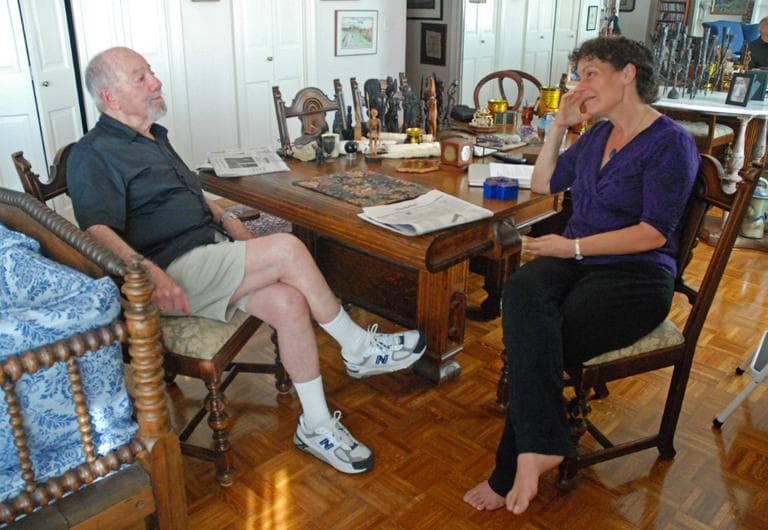Advertisement
CommonHealth: Making End Of Life Conversations Easier
Resume
"It's awful to talk about this stuff, but it's a good thing to do," Carey Goldberg of WBUR's CommonHealth blog told her father, Charlie Ritz.
She was referring to end of life care — questions about who will serve as your health care proxy if you're incapacitated, whether or not you'll want family around you when you pass, which aggressive medical procedures to pursue and which to turn away.
"Well, I don't feel it's awful to talk about it," he interjected. "I think it's healthier. Different times I've wanted to go over my instructions and you always say another time."
Confronting death isn't easy for many people, and openly talking about it with those you care most about can be especially challenging. That's why a group of media and medical professionals recently launched The Conversation Project.
While other resources address filling out the necessary legal forms, The Conversation Project instead focuses on talking through choices and values surrounding an individual's end of life care. Their starter kit provides a step-by-step guide to having the conversation with a loved one.
When Goldberg sat down with her father, he said:
"It's important to me that you...if you have to help me in any way, that there's no guilt involved, that my wishes are what's involved here."
Though reluctant at first, Goldberg found that finally having the conversation was more relieving than stressful:
"I had worried about the responsibility of having to maybe take measures to make decisions that would mean the final end for him. And so this conversation clarified for me that a real priority for him was for me to not feel guilt, and that felt very freeing. That made me realize that I only need to do what really feels right for me while keeping his wishes in mind, so it actually lifted a load from me."
Dr. Jessica McCannon, a critical care physician and an adviser to The Conversation Project, explained that the conversation doesn't need to happen all at once:
"A lot of people are going to have to do this in steps. Some may have that in their hand and think about it for days, weeks, months, as they get ready to have that conversation...And it may be that for some people talking first to friends, physicians, spiritual advisers, may be a best first step before actually sitting down with their families. It's going to be a different process for everyone."
Guests:
- Carey Goldberg, co-host of WBUR's CommonHealth blog
- Dr. Jessica McCannon, research fellow in Pulmonary and Critical Care Medicine at Massachusetts General Hospital. She is also an adviser to The Conversation Project.
More:
To learn more about The Conversation Project, listen to its co-founder, Ellen Goodman:
This segment aired on August 21, 2012.
